
The Antoinette Perry Award for Excellence in Broadway Theatre, more commonly known as the Tony Award, recognizes excellence in live Broadway theatre. The awards are presented by the American Theatre Wing and The Broadway League at an annual ceremony in Manhattan. The ceremony is held on the second Sunday of June.
Come Back, Little Sheba is a 1950 play by the American dramatist William Inge. The play was Inge's first, written while he was a teacher at Washington University in St. Louis.

Stephen David Daldry CBE is an English director and producer of film, theatre, and television. He has won three Tony Awards for his work on Broadway and an Olivier Award for his work in the West End. He has received three Academy Awards nominations for Best Director, for the films Billy Elliot (2000), The Hours (2002), and The Reader (2008).
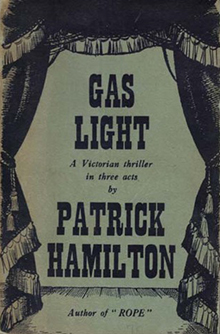
Gas Light is a 1938 thriller play, set in 1880s London, written by the British novelist and playwright Patrick Hamilton. Hamilton's play is a dark tale of a marriage based on deceit and trickery, and a husband committed to driving his wife insane in order to steal from her.
Jennifer Tipton is an American lighting designer. She has designed for dance, theater, and opera. She is known for working on many productions of American Ballet Theatre.

Sophie Anita Treadwell was an American playwright and journalist of the first half of the 20th century. She is best known for her play Machinal which is often included in drama anthologies as an example of an expressionist or modernist play. Treadwell wrote dozens of plays, several novels, as well as serial stories and countless articles that appeared in newspapers. In addition to writing plays for the theatre, Treadwell also produced, directed and acted in some of her productions. The styles and subjects of Treadwell's writings are vast, but many present women's issues of her time, subjects of current media coverage, or aspects of Treadwell's Mexican heritage.
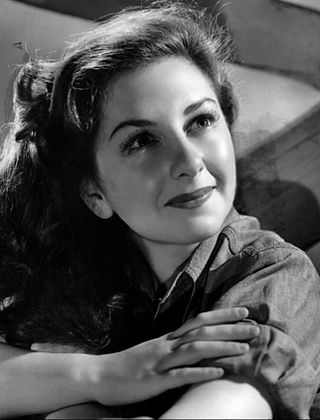
Joan Lorring was an American actress and singer known for her work in film and theatre. For her role as Bessy Watty in The Corn Is Green (1945), Lorring was nominated for the Academy Award for Best Supporting Actress. Lorring also originated the role of Marie Buckholder in Come Back, Little Sheba on Broadway in 1950, for which she won a Donaldson Award.
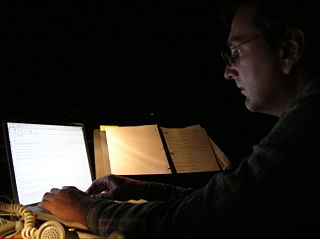
John Gromada is a prolific, award-winning composer and sound designer. He is best known for his many scores for theatrical productions in New York on and off-Broadway and in regional theatres. Broadway plays he has scored include the 2014 production of The Elephant Man, starring Bradley Cooper, The Trip to Bountiful with Cicely Tyson, Gore Vidal's The Best Man, Seminar by Theresa Rebeck, Next Fall, Chazz Palminteri's A Bronx Tale, David Auburn's The Columnist and Proof, Lisa Kron's Well, Rabbit Hole, and A Few Good Men; revivals of Prelude to a Kiss, Summer and Smoke, Twelve Angry Men, Torch Song, and A Streetcar Named Desire. His score for the nine-hour production of Horton Foote's The Orphans' Home Cycle was featured at the Hartford Stage Company and Signature Theatre in New York. Gromada also designed the sound for the Broadway production of Bruce Norris' Tony award-winning play, Clybourne Park.
Michael Cumpsty is a British actor. He made his Broadway debut in the Tom Stoppard play Artist Descending a Staircase (1989). He has acted in plays such as David Hare's Racing Demon (1995), Michael Frayn's Copenhagen (2000), and Democracy (2004), and Sophie Treadwell's Machinal (2014) as well in musicals such as 1776 (1997), 42nd Street (2001), and Sunday in the Park with George (2008). He received a Tony Award for Best Featured Actor in a Musical nomination for his role in End of the Rainbow (2012).
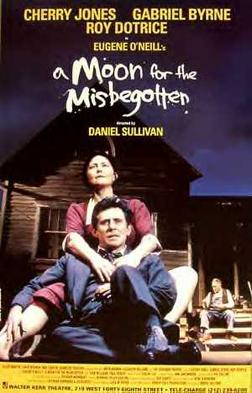
A Moon for the Misbegotten is a play in four acts by Eugene O'Neill. The play is a sequel to O'Neill's Long Day's Journey into Night, with the Jim Tyrone character as an older version of Jamie Tyrone. He began drafting the play late in 1941, set it aside after a few months and returned to it a year later, completing the text in 1943 – his final work, as his failing health made it physically impossible for him to write. The play premiered on Broadway in 1957 and has had four Broadway revivals, plus a West End engagement.

La Bête is a 1991 comedy play by American playwright David Hirson. Written in rhymed couplets of iambic pentameter, the Molière-inspired story, set in 17th-century France, pits dignified, stuffy Elomire, the head of the royal court-sponsored theatre troupe, against the foppish, frivolous street entertainer Valere, whom the troupe's patron, Prince Conti, wishes them to bring aboard. Despite Elomire's violent objections, the company is forced to perform one of Valere's own plays, which results in dramatic changes to the future of Elomire, Valere, and the company itself.

Fanny is a musical with a book by S. N. Behrman and Joshua Logan and music and lyrics by Harold Rome. A tale of love, secrets, and passion set in and around the old French port of Marseille, it is based on Marcel Pagnol's trilogy of works titled Marius (1929), Fanny (1931), and César (1936).
Rick Fisher is an American lighting designer, known for his work with Stephen Daldry on Billy Elliot the Musical and An Inspector Calls. He is from Philadelphia, Pennsylvania and attended Dickinson College, but has been based in the UK for the last 30 years.
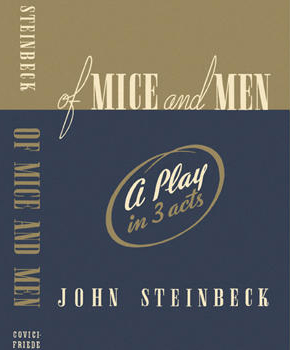
Of Mice and Men is a play adapted from John Steinbeck's 1937 novel of the same name. The play, which predates the Tony Awards and the Drama Desk Awards, earned the 1938 New York Drama Critics' Circle Best Play.
In the Next Room (or The Vibrator Play) is a 2009 play by Sarah Ruhl, published by Samuel French. It concerns the early history of the vibrator, when doctors allegedly used it as a clinical device to bring women to orgasm as treatment for "hysteria." Other themes include Victorian ignorance of female sexual desire, motherhood, breastfeeding, and jealousy. The play was nominated for three 2010 Tony Awards.

Sonia Friedman is a British West End and Broadway theatre producer. On 27 January 2017, Friedman was named Producer of the Year for the third year running at The Stage Awards, becoming the first person to win the award three times. In 2018, Friedman was featured in "TIME100", Time Magazine's 100 Most Influential People of 2018 and was named Broadway Briefing's Show Person of the Year. In 2019, Sonia Friedman Productions was ranked The Stage 's most influential theatre producer in The Stage 100.
The Autumn Garden is a 1951 play by Lillian Hellman. The play is set in September, 1949 in a summer home in a resort on the Gulf of Mexico, about 100 miles from New Orleans. The play is a study of the defeats, disappointments and diminished expectations of people reaching middle age. For inspiration, Hellman drew on her memories of her time in her aunts' boardinghouse. Dashiell Hammett, who had been Hellman's lover for 20 years, helped her write the play and received 15 percent of the royalties. Of all Hellman's plays it was her favorite.
The Trip to Bountiful is a play by American playwright Horton Foote. The play premiered March 1, 1953, on NBC-TV, before being produced on the Broadway stage from November 3, 1953, to December 5, 1953.
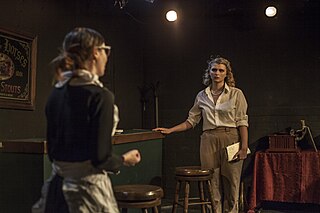
The Big Knife is an American play by Clifford Odets. The original production was directed by Lee Strasberg, who had worked with Odets at the Group Theatre, and starring fellow Group Theatre alumnus John Garfield. The play debuted at Broadway's National Theatre on 24 February 1949 before closing on May 28 after 109 performances. The Big Knife marked the return of Odets to Broadway after a six-year hiatus in which he toiled in Hollywood as a screenwriter and motion picture director. The play concerns the disillusionment of a movie star with the Hollywood's studio system and disgust with himself, as he has lost his idealism in the pursuit of success.

The Inheritance is a play by Matthew López that is inspired by the 1910 novel Howards End by E. M. Forster. The play premiered in London at the Young Vic in March 2018, before transferring to Broadway in November 2019.


















